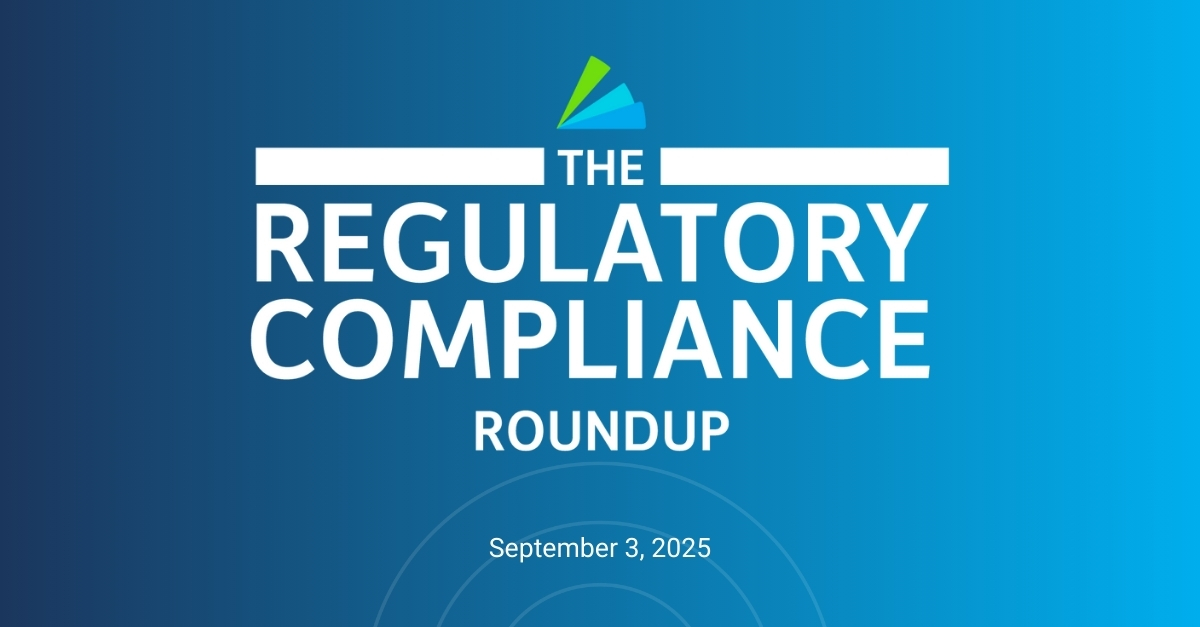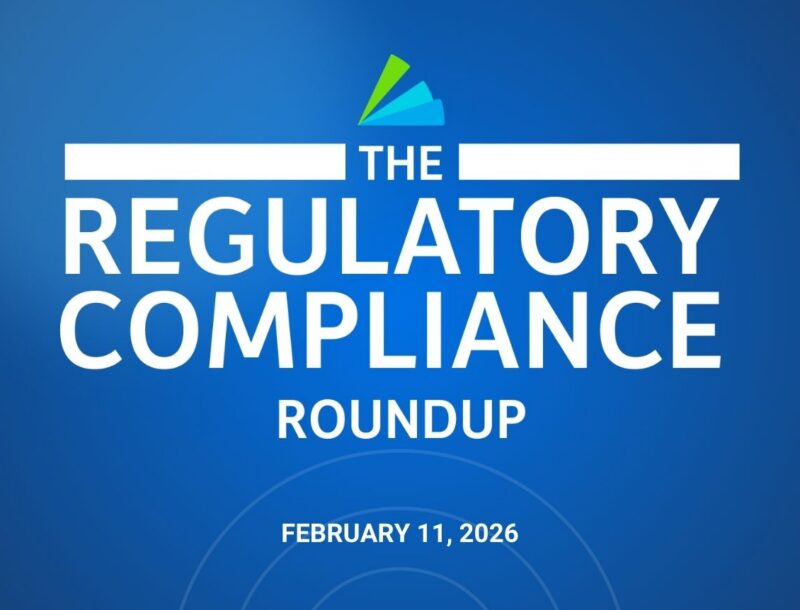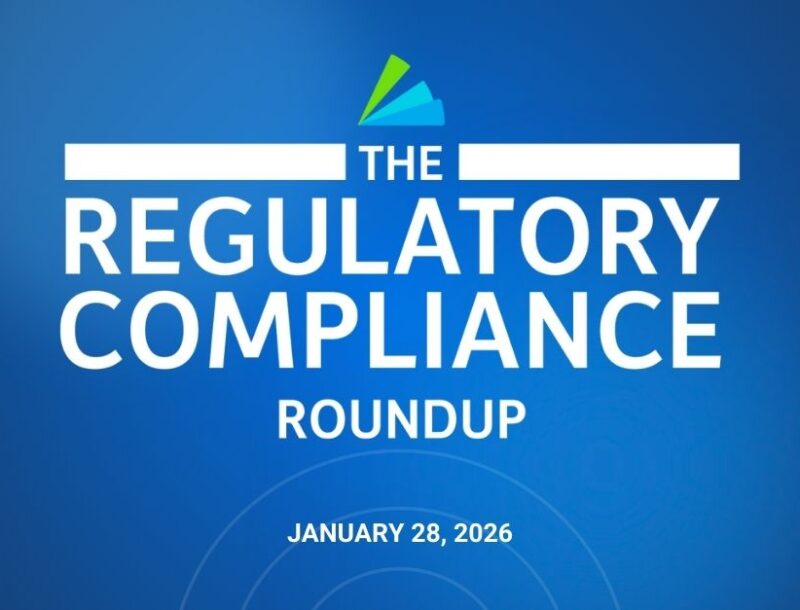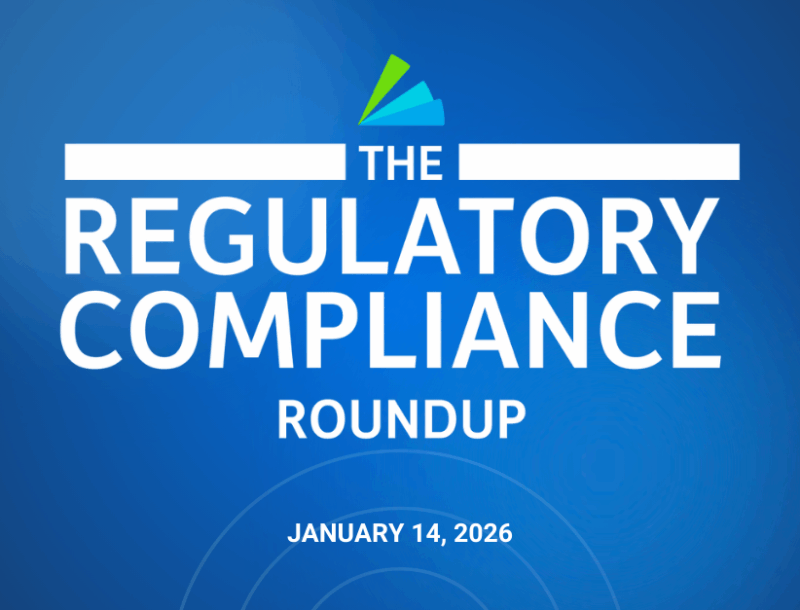The Roundup: Is a Rate Cut Coming, Multistate Investigations Rising, FTC Takes Action Against AI Tool, Data Tells Another Story About Deregulation

Welcome to the PerformLine Regulatory Compliance Roundup, home of the latest news, articles, and reports from our industry, curated for you. Let’s get into it.
In this edition: Did Powell Signal A Rate Cut, Why Multistate Scrutiny May Be Underway, The FTC Helps Gig Workers Affected By Misleading Claims, Order Finalized Against AI Detection Tool for Misleading Accuracy Claims, And What Data Tells Us about “Deregulation”
Do you want to be the first to know when the Regulatory Roundup is released? Subscribe to never miss an email and follow us on LinkedIn for even more updates on marketing compliance.
Powell’s Speech Signals Heightened Likelihood of September Rate Cut
In his much anticipated Jackson Hole address, Federal Reserve Chair Jerome Powell stated “shifting balance of risks may warrant adjusting our policy stance”—a marked departure from earlier caution and suggesting a potential interest rate cut as early as the September meeting. Although he acknowledged persistent inflation pressures—particularly linked to tariffs—Powell framed them as likely short-lived and emphasized that a one-time price increase need not evolve into a sustained inflationary trend. Meanwhile, he raised warnings about the fragility of the labor market, using the phrase “a curious kind of balance” to describe the simultaneous weakening in both supply and demand for workers, and pointed to rising downside risks such as layoffs and slowing hiring.
State AGs Are Stepping Up, Get Ready for Multistate Scrutiny
As Federal regulators are scaling back enforcement, several state Attorneys General—especially in California, New York, Texas, and Connecticut—are ramping up oversight of banks by targeting unfair and deceptive practices (UDAP), privacy issues, and disclosure or fee infractions. Financial institutions operating across multiple states now face overlapping investigations, politically driven enforcement shifts, and inconsistent legal standards. To better manage this evolving landscape, banks should map their exposure by state, create multistate response playbooks, monitor AG priorities (such as overdraft fees and credit‑reporting accuracy), and, where feasible, negotiate coordinated settlements to avoid duplicative obligations and streamline resolutions.
FTC Sends More Than $6.7 Million to Consumers Impacted by Gig Work Company’s Deceptive Earnings Claims
The Federal Trade Commission is sending refund checks to nearly 100,000 consumers who were misled by a gig work platform that falsely advertised high earnings for remote customer service roles. According to the FTC, the company’s claims about potential pay were deceptive and violated federal laws governing business opportunities. As part of a settlement, the company is now barred from making unsubstantiated income statements and must provide accurate, substantiated disclosures about potential earnings. The FTC reminds consumers that it does not require any payment or personal banking information to issue refunds.
Significant Stat:
28%
of U.S. consumers are using BNPL as a payment option, according to a J.D. Power study.
FTC Finalizes Order Against AI Detection Tool for Misleading Accuracy Claims
The Federal Trade Commission has issued a final consent order against a firm that overstated the reliability of its AI‑powered content‑detection tool—an application intended to determine whether written material was generated by artificial intelligence or authored by a human. The company claimed high accuracy based on testing involving academic text, but the FTC found this claim misleading since the tool had only been validated in that narrow context. Under the new order, the provider is prohibited from asserting any performance effectiveness of its product unless it has solid, reliable evidence.
What 1H 2025 Data Tells Us About “Deregulation”
Despite talk of deregulation, data from the first half of 2025 revealed a sharp uptick in marketing compliance enforcement, with state authorities increasingly taking the lead. Regulators cracked down on long-standing issues such as deceptive marketing, discriminatory lending practices, hidden‑interest loans, and undisclosed fees. Meanwhile, federal agencies have continued to pivot their enforcement focus—scrubbing away broader reputational oversight in favor of concentrated scrutiny in areas like influencer marketing, fraud protection, and military consumer safeguarding. The rise in enforcement underscores the growing importance of proactive compliance, robust internal controls, and automation to stay ahead of regulatory expectations.


